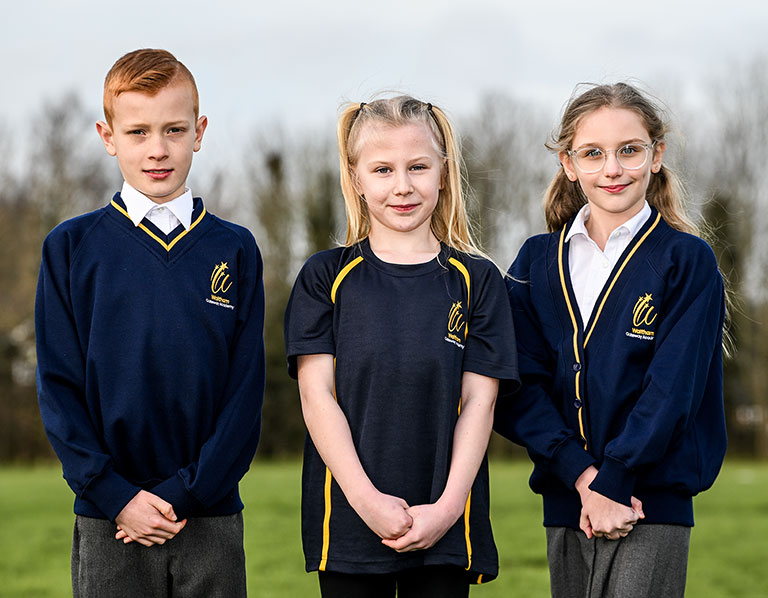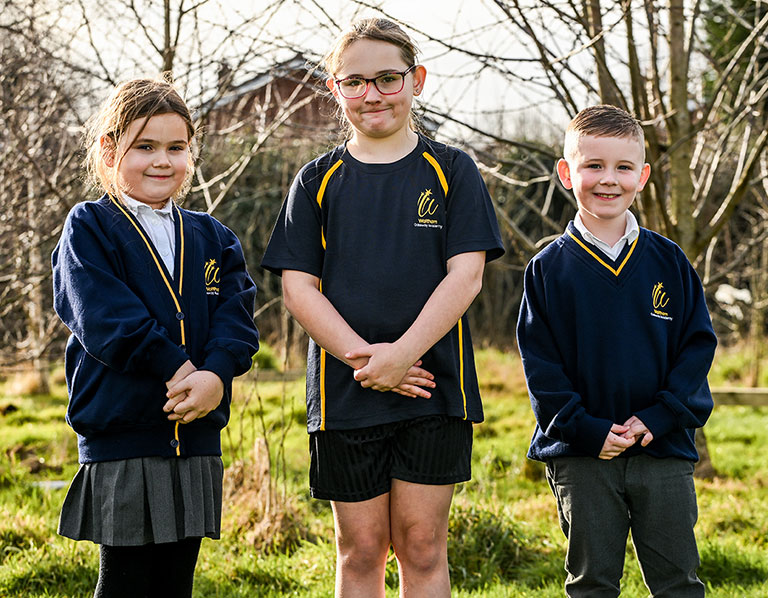Curriculum
Intent
Our curriculum is rooted in the belief that every child, regardless of their background or need, deserves a rich, ambitious, and inclusive education. We intentionally embed trauma-informed principles—Protect, Relate, Regulate, Reflect—across all areas to nurture the holistic development of our pupils, particularly those with Social, Emotional and Mental Health (SEMH) needs.
We aim to:
- PROTECT: Provide psychological safety by ensuring consistency, predictability, and a nurturing school climate.
- RELATE: Prioritise connection and relational safety through strong, attuned adult-pupil relationships.
- REGULATE: Teach and model emotional literacy and co-regulation to support behaviour as communication.
- REFLECT: Encourage children and staff to develop insight into experiences and progress through structured opportunities to reflect.
The curriculum:
- Places reading and oracy at the centre to empower expression, vocabulary growth and access to knowledge.
- Is ambitious, ensuring all pupils, including those with SEMH and SEND, achieve strong academic and personal development, therapeutic outcomes.
- Offers sequenced learning designed around clear, meaningful endpoints.
- Builds cultural capital through enrichment and experiential learning, including bespoke interventions for SEMH pupils.
- Teaches protected characteristics, British values, and concepts of consent, responsibility, and respect in developmentally appropriate ways.
Implementation
Curriculum delivery:
- Is broad and balanced, taught through adaptive teaching methods responsive to SEMH and neurodivergent profiles.
- Uses a relational approach to behaviour, integrating nurture, restorative practices, and emotion coaching.
- Embeds co-regulation tools (e.g. calm corners, breathing strategies, sensory tools) throughout classrooms.
- Ensures SEMH pupils receive a personalised, high-support curriculum that scaffolds them back into mainstream where appropriate.
- Includes trauma-informed approaches based on PACE (Playfulness, Acceptance, Curiosity, Empathy) and Key Relational Skills.
- Maintains a strong staff CPD programme in trauma-informed practices, SEND, attachment, and regulation.
- Uses a dialogic, emotionally literate teaching style that values voice, builds empathy, and resilience through social buffering.
- Involves families through compassionate communication, co-regulation strategies, and support networks.
Our personalised curriculum is bespoke to our learners, offering the following sessions:
- Maths
- English
- Creativity (Art, Design & Technology, Cooking, Music, Movement)
- Physical
- PSHE, including basic neuroscience
Each day children will have the opportunity to move regularly, carry out some academic work, physical activity and be creative using their hands.
A thematic approach to the RSP curriculum in The Nest, underpinned by the Landscapes of the Mind model, provides opportunities for a targeted approach aimed at enabling children to overcome barriers. Pupils will initiate exploration of familiar and less familiar experiences with the support of a familiar and trusted adult, encouraging them to take risks in their learning and discover new skills, all in a safe environment.
The curriculum will be intervention based, targeting individual needs. Pupils will receive 1:1 and small group interventions with trained practitioners to enable them to feel safe (PROTECT), build and sustain trusted relationships (RELATE) so that they can be soothed and coregulated (REGULATE) and eventually begin to mentalise and resolve internal conflicts and wonky narratives (REFLECT).
| Time / Session | Activity |
|---|---|
| 9.15 - 9.45 | Nurturing breakfast |
| 9.45 – 10.00 | 1:1 with EAA / Mentor time |
| Session 1 | Therapeutic: Lego Therapy to support friendship and relationship building |
| Session 2 | Academic: Reading |
| Break | Break |
| Session 3 | Academic: Maths |
| Session 4 | Academic: Creativity – Art linked to the current theme e.g. ‘The World Around Us’ |
| Lunch | Lunch |
| Session 5 | Physical Activity |
| Session 6 | Academic: Creativity – Cooking linked to the current theme e.g. ‘The World Around Us’ |
| Session 7 | Academic/Therapeutic: PSHE, based on The Story Project, using social stories. |
| 14.00 – 14.30 | 1:1 with EAA / Mentor time |
The structure of the day provides containment, certainty and predictability. Strong routines will be established that provide a rhythm to each lesson so that there is a calming phase at the start, bringing the energy level up in the middle and a calming and soothing activity at the end to aid transitions.
Impact
Pupils will:
- Feel safe, valued, and known as individuals.
- Develop emotional literacy, self-regulation, and social buffering.
- Engage in learning because they are regulated, connected, and supported to feel successful.
- Show sustained progress in key skills, especially reading, speaking and listening.
- Become reflective learners who can talk about their thinking and feelings constructively. This will be scaffolded by the Arts where appropriate.
- Be well-prepared for their next phase of education, socially and academically.
Staff will:
- Create emotionally safe spaces where behaviour is seen through a relational and developmental lens.
- Model regulation, relational repair and attuned, empathic responses.
- Collaborate closely across mainstream and SEMH settings to share insights, support transitions, and maintain consistency.
- Be supported emotionally and professionally, recognising the impact of vicarious trauma and emotional labour.
- Use trauma-informed strategies for assessment, differentiation, and feedback.
- Contribute to a culture of compassion, high expectation and therapeutic accountability.


